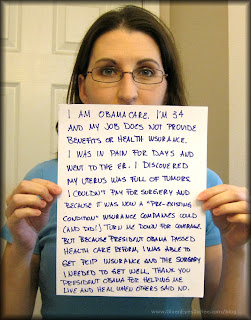this WILL end ANY and ALL internet privacy if this bill is not stopped.
In the wake of this week's passage of the controversial Cyber Intelligence Sharing and Protection Act (CISPA) by the U.S. House of Representatives, representatives from the hacktivist group Anonymous – if they truly have "representatives" per se – are calling for an "Internet Blackout Day" on Monday in protest.
Specifically, Anonymous is calling upon website owners to take down their normal pages and replace them with a page that explains the reasons for the change (and protest), and they're also asking that they help spread the word to their fellow site owners and encourage them to do the same.
The call to action is similar to the January 18, 2012 blackout day that had more than 7,000 websites – including a number of the Web's more noteworthy sites, like Wikipedia, Reddit, Google, and Mozilla -- going dark to protest the Stop Online Piracy Act (SOPA). While the bill was ultimately shelved, it does share commonalities with CISPA in the sense that both attempted to use heavy-handed techniques to deal with Internet-themed issues.
In SOPA's case, the bill looked to thwart online piracy by imposing the equivalent of Cyber "death penalties" against sites shown to be hosting copyright-infringing content. Internet services providers would be asked to prevent its members from accessing said sites – creating what amounts to "The Great Firewall of America," as described by a New York Times opinion piece at the time.
CISPA, on the other hand, would allow Internet Service Providers and other Web-themed companies to share information about their users with the government and one another under the guise of "cyber-security" – with increased protection against any privacy lawsuits that their users might bring as a result.
"Whenever these prerequisites are met, CISPA is written broadly enough to permit your communications service providers to share your emails and text messages with the government, or your cloud storage company could share your stored files," reads a FAQ by the Electronic Frontier Foundation, a chief opponent of the legislation.
Although the bill passed the house by a not-so-significant degree – 288 votes in support versus 127 opposing – Mediaite's Glenn Davis notes that there are still some fairly significant hurdles before CISPA springs alive. Not only does the bill have to make its way through the Senate, it also has to survive a previously threatened veto by the White House.
In other words, don't take a lack of fervor from webmasters tomorrow as a sign that the Internet's heavyweights have given up. Or, as Davis puts it, "don't freak out about CISPA (yet)."
"The possibly still exists that a future version of CISPA, with enough privacy protections added to gain Senate and presidential support – but still not enough to satisfy civil liberties advocates – will pass (after all, Obama's reputation among civil liberties advocates is already shot anyway). But that will most likely be another issue for another year – based on everything we've seen for a year now, CISPA as it's currently written doesn't stand a chance," he writes.
-pcmag.com (http://www.pcmag.com/article2/0,2817,2417983,00.asp)
